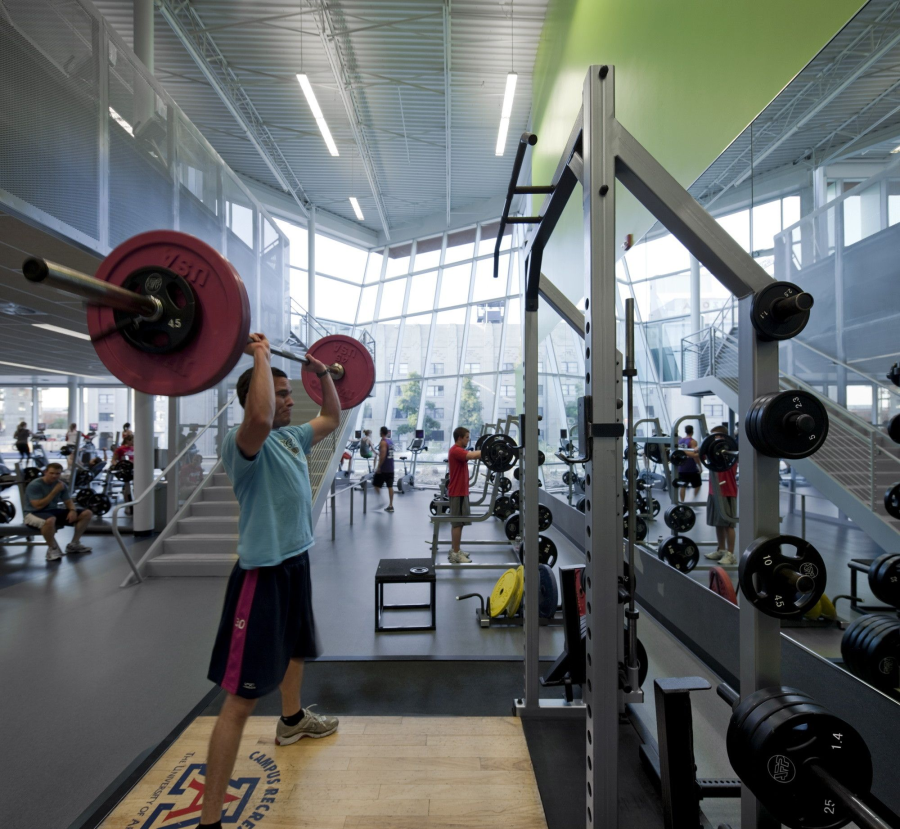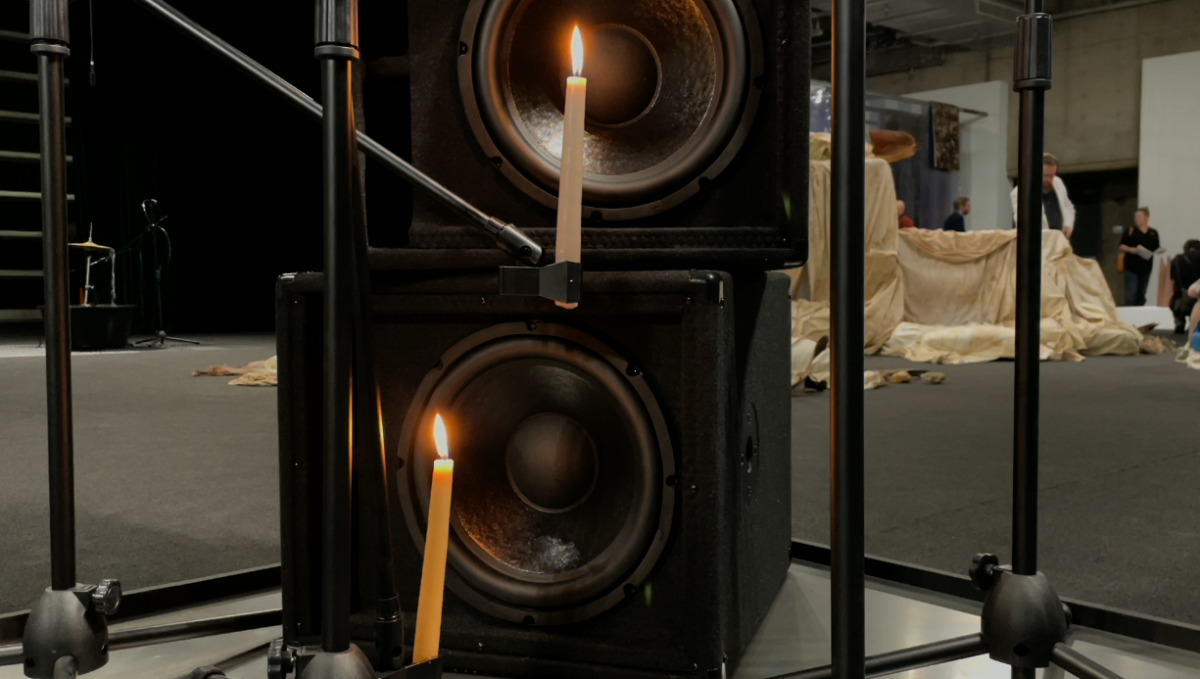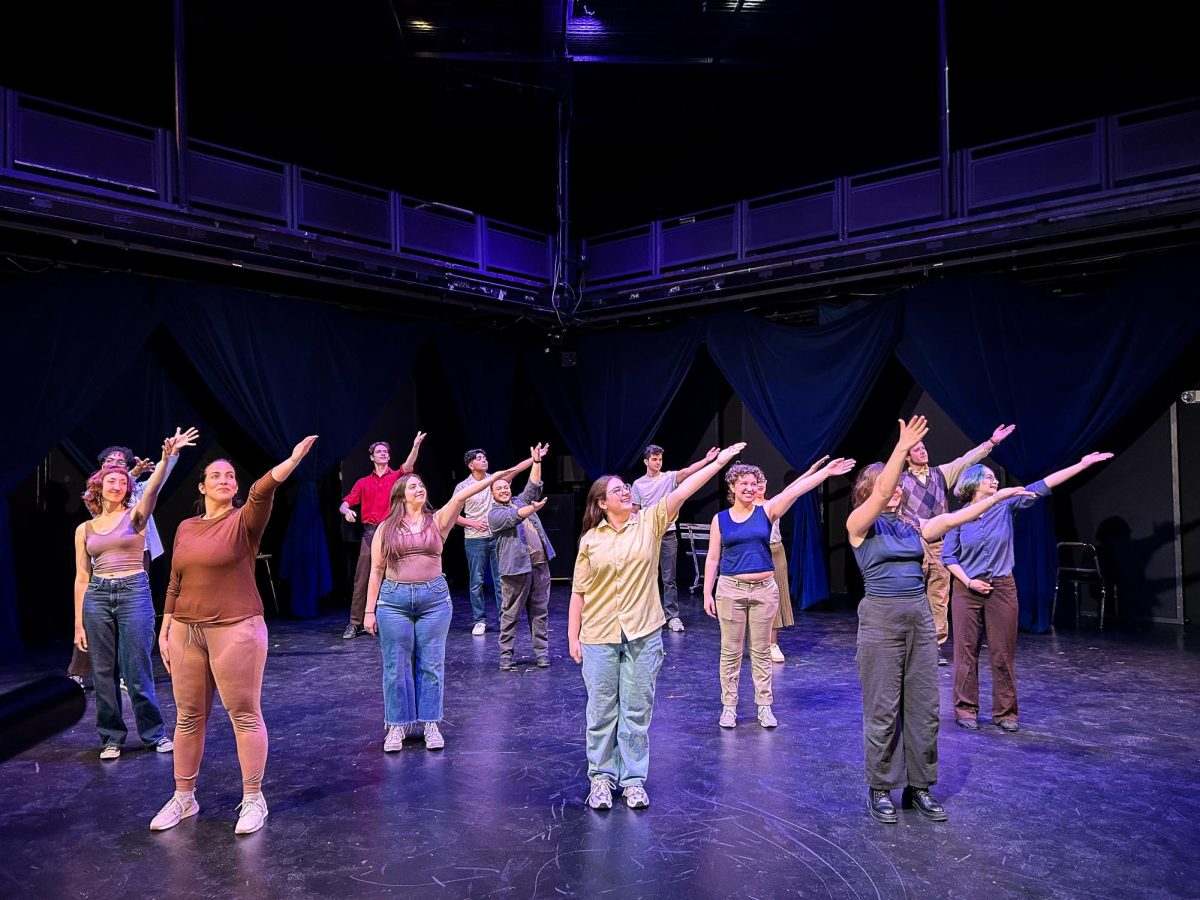The gym can be a place of clarity and strength but can also come with insecurities as we focus on our bodies. Many students at the University of Arizona are physically active and want to grow in their body positivity at the gym.
Olivia Wilson is a junior at the UA who believes body positivity starts with respect for your body as it endures daily activities and stresses to function. She said she believes being happy with your body is important but focuses on “body neutrality,” which is more realistic for people to achieve.
“They may not always be celebratory of how they look or feel, rather they are just content,” Wilson said.
The gym has helped many grow in confidence and acts as a form of meditation. Emily Palajian is a student who danced most of her life up until college. She grew up focused on a ballerina’s body type and was scared of growing big muscles.
“Growing up a ballerina and looking at myself in skin tight clothing in a mirror for hours a day took a beating on me,” Palajian said.
Once she started hitting the gym during quarantine that all changed and she realized she wanted to get stronger.
RELATED: Struggling with registration? Take a look at these unique gen-ed courses
A great mindset to have is everyone at the gym is there to better themselves and you are respected for it. Palajian described how someone’s health is not defined by the way that they look and everyone has their own fitness journey.
Sameer Bissessur is a junior studying physiology that frequents the gym. He feels that it is a fun environment to get in shape.
“Everyone’s body is different and I respect everyone that is in the gym because we all start at different times and they do not have the ability to workout as much as others,” Bissessur said.
The gym can be an ambiguous place as it increases one’s confidence while also triggering body dysmorphia, Bissessur explained. He believes that you should be confident no matter what others say.
One’s healthy relationship with the gym relies on setting boundaries, according to Palajian. This can include knowing when to rest, how to nourish your body and resisting comparing yourself to others.
“I do get insecure when there’s a girl next to me lifting more, but I just have to remind myself of my own journey and how I should be proud of the progress I have made,” Palajian said.
When the students don’t feel great walking into the gym they focus on adjusting their attitudes. Wilson explained how she dresses in clothes that align with her headspace for the day and chooses motivating music on her off days.
Gym stereotypes can enhance insecurities as many are confined to the perfect example of a gym body or workout. Women are often expected to be lean in the right places but curvy in the others, Wilson described.
“So many factors can affect someone’s body composition and that is not always a reflection of their habits,” Wilson said.
Men face the expectation to gain a lot of strength quickly and maintain a certain physique. Bissessur also explained that many are considered “gym-rats” which can create an unhealthy balance at the gym.
The gym is meant for everyone and every level. Confidence is key as well as gaining the knowledge to be safe and healthy as our bodies endure a variety of exercises.
Follow Ellen Nangia on Twitter









